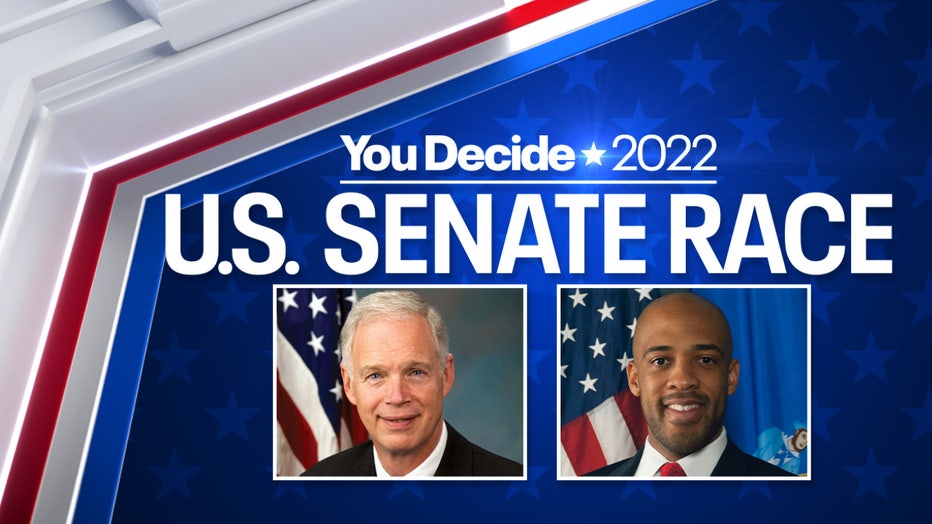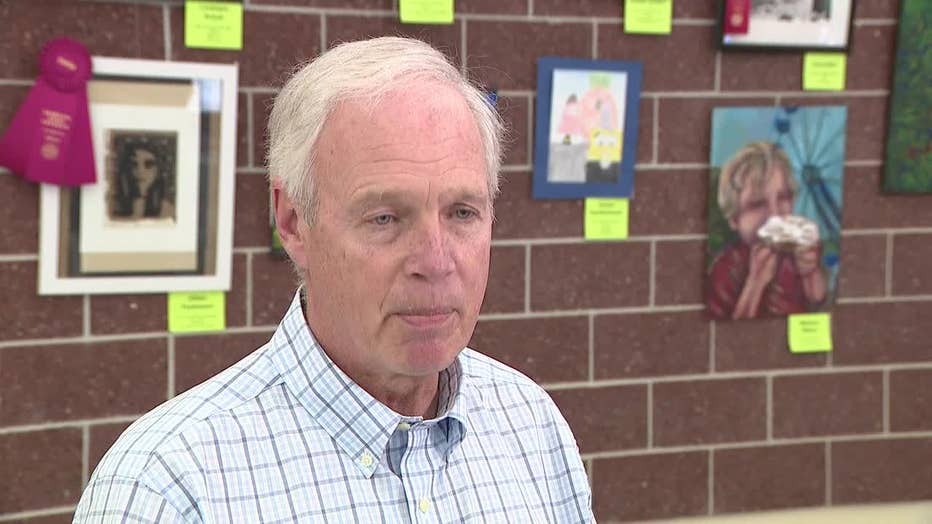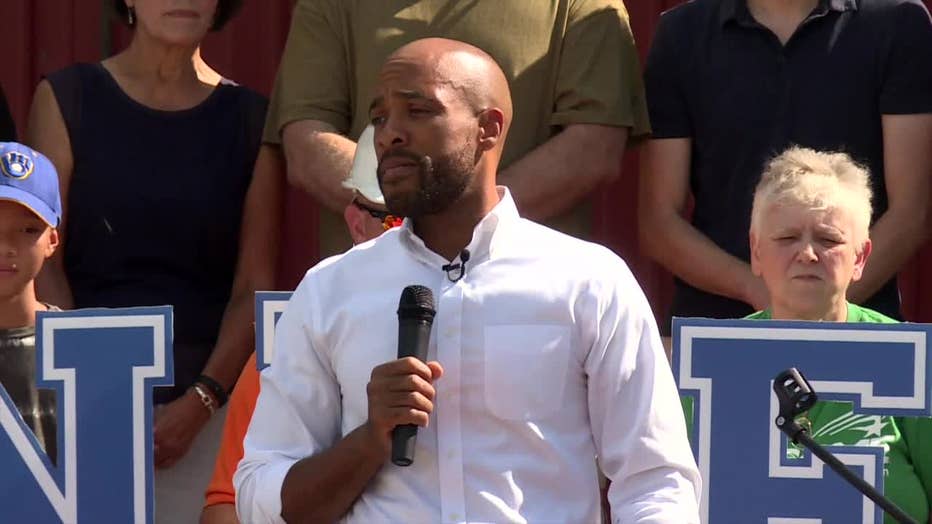Abortion in Wisconsin: Senate candidates Johnson, Barnes on bans
Senate debate Wisconsin Johnson Barnes
Wisconsin's two candidates for U.S. Senate took the same stage Friday night, Oct. 7 after months of pounding their opponents on TV and at campaign stops across the state.
MILWAUKEE - The two Wisconsin candidates for U.S. Senate took the debate stage Friday after months of pounding their opponents on TV and at campaign stops across the state.
The race between Republican incumbent U.S. Sen. Ron Johnson and Democrat challenger Lt. Gov. Mandela Barnes could decide which party takes control of the U.S. Senate.
The latest FOX News poll found the top issues on the minds of Wisconsin voters:
- Preservation of American democracy, 24%
- Inflation, 20%
- Abortion, 16%
Abortions have stopped in Wisconsin at the state's four clinics, two of which are in Milwaukee. The U.S. Supreme Court struck down Roe v. Wade in June; that's when Wisconsin's long-dormant abortion ban from 1849 sprung back to life. It offers one exception, to save the life of the mother, otherwise it is considered a felony that applies to those performing the procedure – not the mother.
"It's obviously an issue that impacts women. On the whole it impacts everybody and I wish more men thought about it that way," said Barnes. He toured Wisconsin with his "Ron against Roe" tour.

Johnson praised the court's reversal and, in 2011, he co-sponsored the "Life at Conception Act." The bill's summary states it would declare "that the right to life guaranteed by the constitution is vested in each human being beginning at the moment of fertilization, cloning, and other moment at which an individual comes into being."
"All that acknowledges that life begins at conception. I believe that," said Johnson.
Democrats disagree, saying the proposal would lead to abortion being considered murder with no exceptions.
SIGN UP TODAY: Get daily headlines, breaking news emails from FOX6 News
"I've always supported the exceptions," Johnson said.
After the Roe v. Wade decision, Johnson proposed a statewide referendum for voters to decide how far along in pregnancy an abortion could take place. The sample referendum poses the question: At what point does society have the responsibility to protect the life of an unborn child? Followed by 10 options:
- From the moment of conception.
- One month (four weeks) after conception
- Two months (eight weeks) after conception
- Three months (12 weeks) after conception
- Four months (16 weeks) after conception
- Five months (20 weeks) after conception
- Six months (24 weeks) after conception
- Seven months (28 weeks) after conception
- Eight months (32 weeks) after conception
- Never – an unborn child has no right to life

Ron Johnson
FOX6 News asked Johnson at which stage he would say is the point at which society should protect unborn life:
Johnson: "What I'm trying to do is I'm trying to figure out a way that we can form that consensus, where we the people make that choice. If we actually engage in this single-issue, one-time referendum, I'll have one vote like everybody else in Wisconsin."
FOX6: Can you tell us where you would stand right now?
Johnson: "I would obviously protect life at some stage."
FOX6: On that referendum, where would you stand right now as far as 10 weeks, 15 weeks? I mean, where would you draw that line?
Johnson: "I’ve supported protecting life after 20 weeks – that’s five months. The Mississippi law, I primary signed an amicus brief there, to send this to the states. And send it back to the people for us to make that decision, so."
FOX6: With your referendum would there be – so let's say you said OK, we're going to protect life after 15 weeks. Would there then still be exceptions for rape and incest past 15 weeks?
Johnson: "That would be – that might be an alternate or an additional question on that referendum."

Mandela Barnes
As far as Barnes, he told reporters in Eau Claire that he is opposed to time limits.
"This is about treating each individual situation as they are. You can't legislate a specific timeline," said Barnes.
Earlier this week, FOX6 questioned Barnes on that timeline.
FOX6: On the issue of abortion, where would you set restrictions, would you set any restrictions on abortion, up until birth, for example?
Barnes: "I support us going back to Roe. It’s the law that worked for 50 years. And it’s what’s supported by 70% of people in Wisconsin. And Ron Johnson just doesn’t understand that, because he wants to put his own personal opinion in between the decision of a woman and her doctor."
However, Roe v. Wade allowed states to restrict and even ban abortion after viability with exceptions to save the mother.
FOX6: What about past viability: Would you support a ban on abortion after viability?
Barnes: "Like I said, it’s about going back to Roe. It’s about (making) sure women can make the best choice for their health care. And doctors shouldn’t be criminalized for helping a woman through that decision."
FREE DOWNLOAD: Get breaking news alerts in the FOX6 News app for iOS or Android.
Wisconsin reports, in 2021, the state saw roughly 6,400 abortions. Broken down by gestation:
- 5,031 (79%) were 10 weeks or fewer
- 1,005 (16%) were 11-15 weeks
- 341 (5%) were 16-20 weeks
- 53 (Less than 1%) were 20 weeks or more
The overall number has fluctuated. It was a little higher in 2021 and a lot higher in the 1980s and early 2000s. Now, as that number drops to zero in Wisconsin, voters will decide which of those candidates wins their vote.

